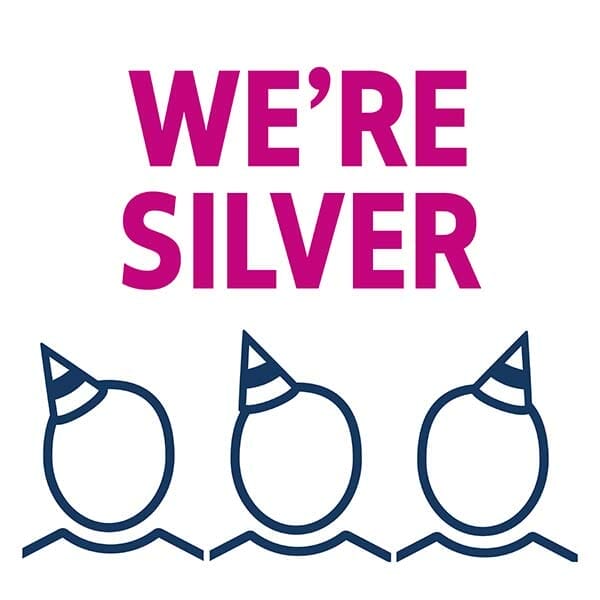How to manage fatigue with a neurological condition (Part 1)
Part 1: Understanding your fatigue, avoiding a boom-bust cycle, and how occupational therapy can help
Fatigue is an extremely common symptom for people living with neurological conditions. Neurological fatigue is an overwhelming feeling of tiredness which can be debilitating enough to prevent people from doing everyday activities like getting dressed, going to the shops or preparing food. Unlike physical fatigue, neurological fatigue is not alleviated by taking a rest. Many people with neurological fatigue feel misunderstood and isolated because they appear ‘normal’ to their family, friends and work colleagues.
This two part blog aims to offer general advice to people living with fatigue and those supporting them. It is important to note that each person is different and how fatigue is experienced and managed is unique for each person. These general strategies are a good starting point; however you should discuss them with an occupational therapist to develop a bespoke fatigue management plan that is right for you. Click here to enquire or book an appointment.
Understanding your fatigue
Fatigue can occur as a direct result of a neurological condition but is often made worse by other factors such as lack of exercise and low mood. Asking the following questions can help you to consider the other factors contributing to your fatigue:
- Is my sleep disturbed?
- Do my medications contribute to fatigue?
- Am I getting any exercise?
- How much is my mood affecting my fatigue?
- What makes my fatigue better or worse?
- How does my fatigue fluctuate during the day?
Learning your triggers
Take note of what exacerbates your fatigue – is it physical tasks? Or perhaps being in busy environments, or concentrating on one thing for a long time. An occupational therapist might suggest you keep a diary for 1-2 weeks to identify patterns in your fatigue, including triggers and other influencing factors.
Avoiding the ‘boom-bust’ cycle
Most people tend to have a time in the day when they feel they have more energy. Often there is a temptation to do as much as possible during these times, but this leads to periods of enforced rest and fatigue during a subsequent ‘recovery’ period. We refer to this cycle as ‘boom and bust’ and it often leads to reduced activity levels over time. It is comparable to going on a big shopping spree as soon as you get paid and then being in debt for the rest of the month. The aim is to balance activity and rest in order to reduce the variations in activity levels.
Figure 1: The Boom and Bust cycle

Figure 1 Balancing activity and rest
The effects of fatigue
Fatigue can affect your mood, concentration, memory and your ability do to the daily tasks you need or want to do. It may be helpful to explain to others how fatigue affects you and help them to understand the limits of your energy resource. Working with an occupational therapist can help reduce the impact of your fatigue on your daily life.
How does occupational therapy help fatigue?
Occupational therapists at the National Hospital for Neurology and Neurosurgery work with people who have difficulty doing a range of daily tasks because of a neurological condition. An occupational therapist will consider how your physical and cognitive symptoms (including fatigue) influences your ability to do valued daily tasks. These may include getting dressed, cooking a meal, caring for children, working or socialising. An occupational therapist can help you identify what triggers your fatigue, recognise positive and negative coping strategies, and help you implement fatigue management strategies such as pacing, prioritising, relaxation, and energy conservation.
Read part two of this article here: General principles for fatigue management in occupational therapy.
To book an appointment with a private neuro specialist occupational therapist at The National Hospital for Neurology and Neurosurgery click here. Referrals are only accepted for patients with an NHNN consultant. Alternatively, seek a referral to an NHS neuro occupational therapist via your GP.
The following are useful resources for people living with neurological fatigue and their families and carers:
The Brain Tumour Charity –https://www.thebraintumourcharity.org/understanding-brain-tumours/living-with-a-brain-tumour/side-effects/fatigue-and-brain-tumours/
MacMillan – https://www.macmillan.org.uk/information-and-support/coping/side-effects-and-symptoms/tiredness
Brain and Spine Foundation –https://www.brainandspine.org.uk/information-and-support/living-with-a-neurological-problem/fatigue/
The Stroke Association –https://www.stroke.org.uk/sites/default/files/fatigue_after_stroke.pdf
MS Society – www.mssociety.org.uk
MS Trust – www.mstrust.org.uk



